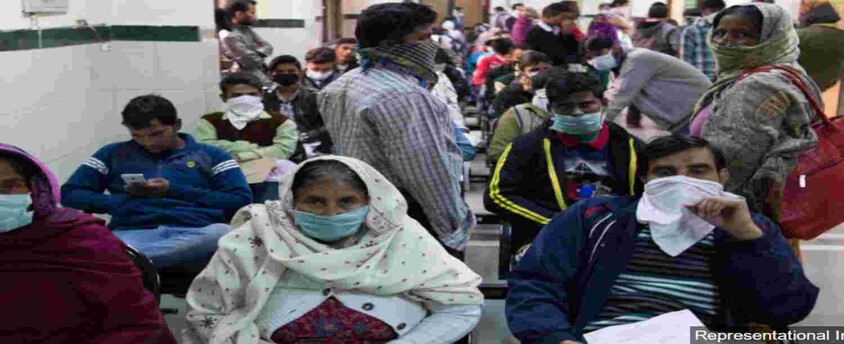India’s fight against Tuberculosis
22, Apr 2023

Prelims level : Governance
Mains level : GS-II Governance - Issues Relating to Development & Management of Health
Why in News?
- The One World TB Summit was organised in Varanasi by the Ministry of Health and Family Welfare (MoHFW) and the Stop TB Partnership.
Highlights:
- Prime Minister Narendra Modi addressed the One World TB Summit on the occasion of World Tuberculosis Day (March 24)
- PM Modi emphasised the need for innovation and new strategies to achieve the desired outcomes in global tuberculosis (TB) elimination response.
- He highlighted India’s multi-pronged approach to tackling TB in the past nine years and also reiterated India’s future commitment to spearhead this effort.
Lesson:s from the COVID-19 response
- One of the most significant lessons from the COVID-19 pandemic is the need to strengthen healthcare systems, particularly in low- and middle-income countries like India.
- A strong health system is critical for the effective management of infectious diseases such as TB.
- By investing in healthcare infrastructure, increasing the availability of health workers, and improving access to medicines and diagnostic tools, India can improve its capacity to detect, diagnose, and treat TB cases.
- In India, TB control programs can benefit from involving communities in awareness campaigns, contact tracing, and treatment adherence. This can help to reduce the stigma associated with TB and improve treatment outcomes.
- According to the recent National TB Prevalence Survey, 64% of individuals with contagious TB in India did not seek medical attention, leading to a situation where nearly two cases go undetected for every TB case reported at the national level.
- Telemedicine, remote consultations, and digital health platforms can help in the early detection of TB, improve treatment adherence, and provide real-time monitoring and reporting of TB cases.
- Using effective data management to monitor the incidence and prevalence of TB, identify high-risk populations, and track treatment outcomes, India can develop targeted interventions and allocate resources more effectively.
- India has a significant burden of drug-resistant TB, and research and development can help in developing new, more effective treatments and diagnostic tools.
- The Mission COVID Suraksha programme to develop vaccines was a good example of a public-private partnership, with clear goals and outcomes.
- The huge number of diagnostic tests developed and a variety of different vaccine platforms show that our manufacturing sector is robust and can scale rapidly.
Vaccine Trials:
- The fight against TB requires the development of an effective vaccine, improved accessibility and affordability of testing and diagnosis, and the introduction of new therapeutic molecules.
- The Bacille Calmette-Guérin (BCG) vaccine does not provide adequate protection for high-risk groups, highlighting the need for a new vaccine.
- Point-of-Care Tests (POCTs) and handheld digital X-ray machines can provide rapid and affordable testing.
- The introduction of new therapeutic molecules such as the 1HP regimen for latent TB infections, the four-month regimen (HPZM) for drug-susceptible TB, and the six-month regimen (BPaL/M) for drug-resistant TB can also play a crucial role.
- While progress has been made, more efforts are needed to prioritise clinical trials for vaccine candidates, scale-up effective regimens, and repurpose existing drugs for TB treatment.
Way Forward: Appropriate policy frameworks
- Strengthening the innovation ecosystem by creating regulatory and policy frameworks to facilitate the rollout of proven tools.
- Collaboration is needed between policymakers, scientists, product developers, and clinical researchers across regions and potentially even between governments.
- Harmonisation of standards and regulatory processes between countries can save critical time towards rollout by enabling mutual recognition of evidence-based standards and licences.
- Creation of a strong platform that channelises investments in research to bring in a paradigm shift at every stage of the TB care cascade — prevention, testing, and treatment.
- India has the opportunity, as the G-20 president, to create a global health architecture that ensures equitable access for all.
- India can lead the way in eradicating TB as the leading infectious disease killer globally in the 21st century.
- Collaborative development of transformational tools and approaches is necessary to address the needs of both developed and developing countries, especially those who are under-represented and disproportionately affected.






